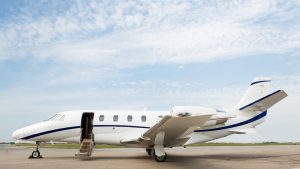Why Taxes Matter in Jet Ownership
Many high-income individuals explore private jet ownership not just for convenience or flexibility, but for the private jet tax benefits that come with proper structuring. With the right setup, an aircraft can become a legitimate business tool that provides deductions, deferrals, and strategic tax advantages. But those benefits only apply if the aircraft is used, structured, and documented the right way.Understanding Private Jet Tax Benefits
-
Bonus Depreciation for Private Jets (U.S. Only)
Under U.S. tax law, particularly the Tax Cuts and Jobs Act (TCJA), certain aircraft purchases can qualify for bonus depreciation if:
-
The aircraft is used primarily for business (over 50% of total use)
-
The purchase is new to the taxpayer (not necessarily brand-new)
-
The taxpayer materially participates in the business activity
This can allow you to deduct a large portion of the aircraft’s value in the first year, reducing taxable income significantly.
Current Bonus Depreciation Rates
- 2023: 80%
- 2024: 60%
- 2025: 40% (unless legislation changes)
-
Deductible Operating Expenses for Private Jets
When a jet is used for qualified business travel, ongoing expenses may be deductible as business costs:
Crew, Maintenance, and Fuel
- Crew salaries and training
- Hangar rent
- Fuel and maintenance
Management and Insurance Costs
- Insurance
- Aircraft management company fees
-
Entertainment Flights Come with Limits
- Purpose of each flight
- Passenger details and roles
- Business justification for the trip
-
The Role of Aircraft Ownership Structure in Maximizing Tax Benefits
- Leasing the aircraft to a business entity
- Setting up a dry lease or flight department under Part 91
- Using an aircraft management company for day-to-day operations
-
Don’t Overlook Sales & Use Tax for Private Jet Purchases
- Flyaway exemptions
- Leasing structures
- Out-of-state delivery or predominant out-of-state use
How to Maximize Private Jet Tax Benefits While Staying Compliant
- Document every business-related flight
- Maintain clear separation of business and personal use
- Engage both aviation and tax professionals
- Use management systems to track utilization and expenses
Final Thoughts on Private Jet Tax Benefits
Yes, a private jet can help reduce your tax burden. But it’s not automatic, and the benefits come with strict compliance requirements. With intentional planning, proper ownership structure, and meticulous recordkeeping, these tax advantages can be significant.
La Casa Jet works with trusted aviation tax professionals to ensure your aircraft is operated safely and strategically. Whether you’re buying your first jet or optimizing your current setup, we can connect you with the right expertise to ensure your jet makes sense in the sky and on paper.






